Rising tree temperatures could lead to 'severe consequences'
- Published
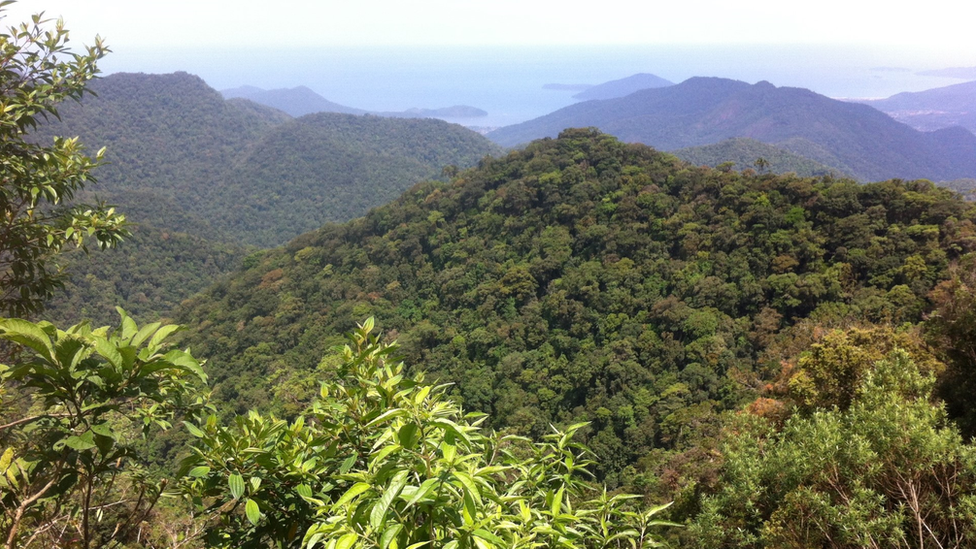
The study was conducted in canopies across the Tropics including Brazil and Australia
Trees are reaching, and exceeding, temperatures in which they can no longer function, scientists warn.
A new study suggests that "entire canopies could die" if more is not done to stop temperatures from rising.
University of Plymouth academics joined international researchers to analyse leaf temperatures in trees across the Tropics.
"If we don't do more to address climate change, the consequences could be severe," Dr Sophie Fauset said.

Dr Sophie Fauset said entire tree canopies could die
Researchers said the study demonstrated, for the first time, that a small percentage of tropical leaves are already reaching, and at times exceeding, the temperatures at which they can no longer function.
They said their findings have serious implications because tropical forests are home to most of the world's biodiversity and are key regulators of our climate.
The study also suggested that as climate change continued, entire canopies could die.
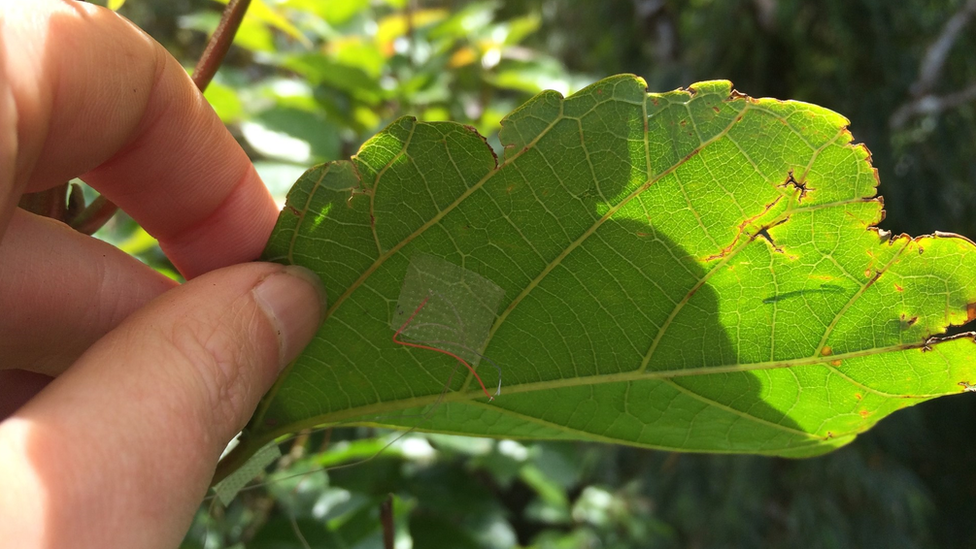
Sensors were stuck onto leaves to take temperatures up to every 10 seconds
The team used specialist equipment, including a sensor on the International Space Station, that allowed the scientists to look at the canopies on a bigger scale.
By taking leaf temperatures, in some cases every 10 seconds, researchers were able to build a picture of the effect further climate change could have on forests.
"We think tropical trees can cope with maybe up to a four degree rise in temperature and beyond that we might start to see temperature-induced mortality which obviously has really big consequences for the forest, biodiversity and for carbon," Dr Fauset, associate professor in terrestrial ecology, told the BBC.
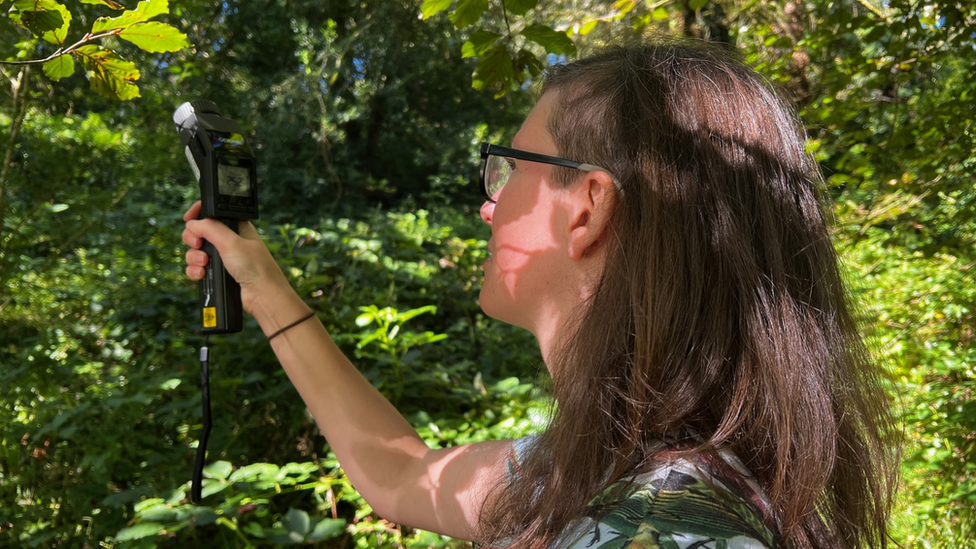
Dr Fauset spent time studying leaf temperatures in tropical climates
Leaf temperatures can often be higher than that of the air but in one extreme example, Dr Fauset said she saw a difference of 18C compared with the ambient temperature.
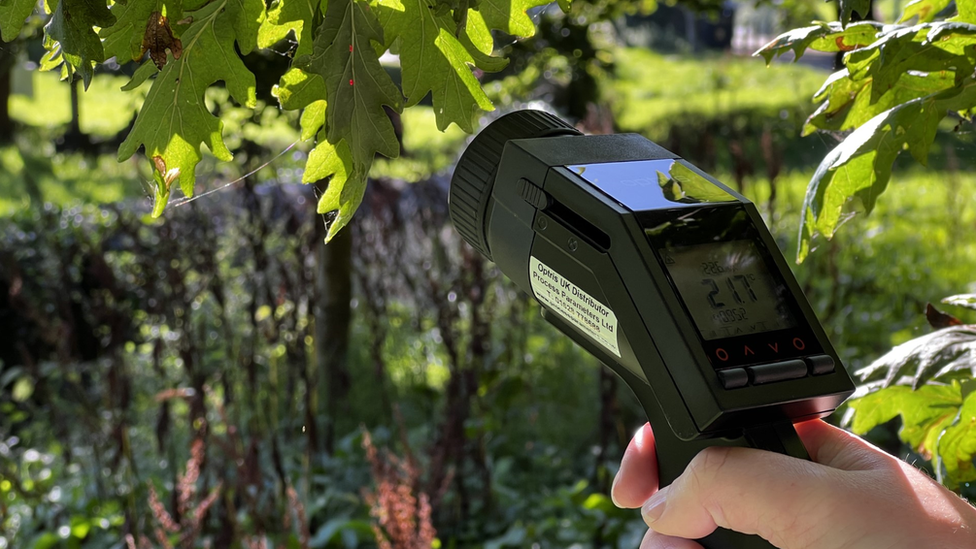
The research concluded that with some climate mitigation, the issue could still be addressed
Studies were carried out in Brazil, Australia and Puerto Rico.
The results showed that more than one percent of the leaves in the canopy warming experiments exceeded critical temperature thresholds - estimated at 46.7C - at least once a year.
'Not fate'
Lead author Dr Christopher Doughty, from Northern Arizona University, said the team's model was "not fate".
He said: "It suggests that with some basic climate mitigation, we can address this issue, and helps pinpoint a few key areas that need further research.
"It also shows that by avoiding high-emissions pathways and deforestation, we can protect the fate of these critical realms of carbon, water and biodiversity."
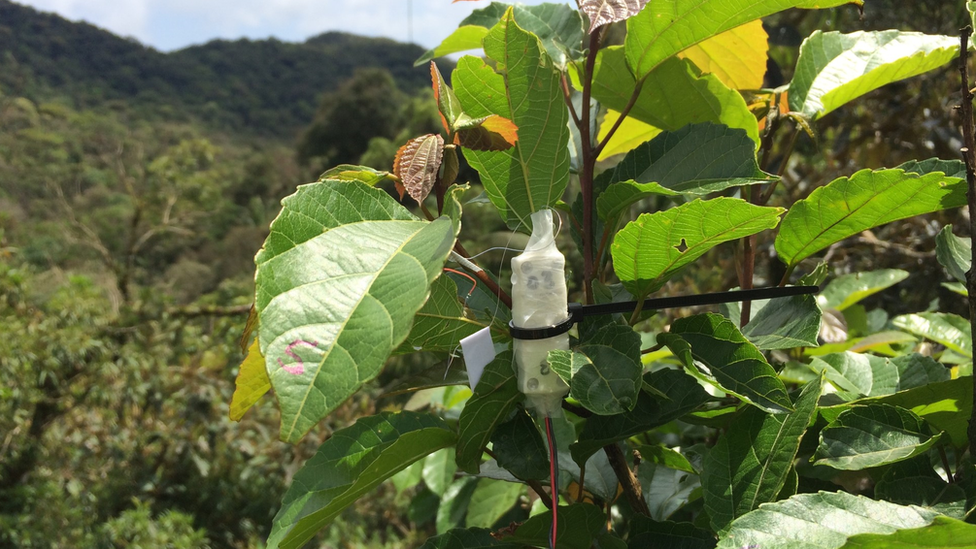
Results showed that in some cases, leaves were already reaching the maximum temperature in which they could function
The study also simulated the fate of tropical forests under future climate change warming scenarios, exploring the impact of increased air temperatures and more frequent drought incidence.
It showed this reduces plants' evaporative cooling ability and accelerated leaf temperatures and possible tree mortality.
As leaves died in the model, they could no longer provide additional cooling, accelerating warming even more.
It comes as a second study continued looking into tree temperatures within the UK following the country's hottest month on record.

Follow BBC News South West on Twitter, external, Facebook, external and Instagram, external. Send your story ideas to spotlight@bbc.co.uk.
- Published27 July 2023

- Published4 August 2023

- Published28 June 2023
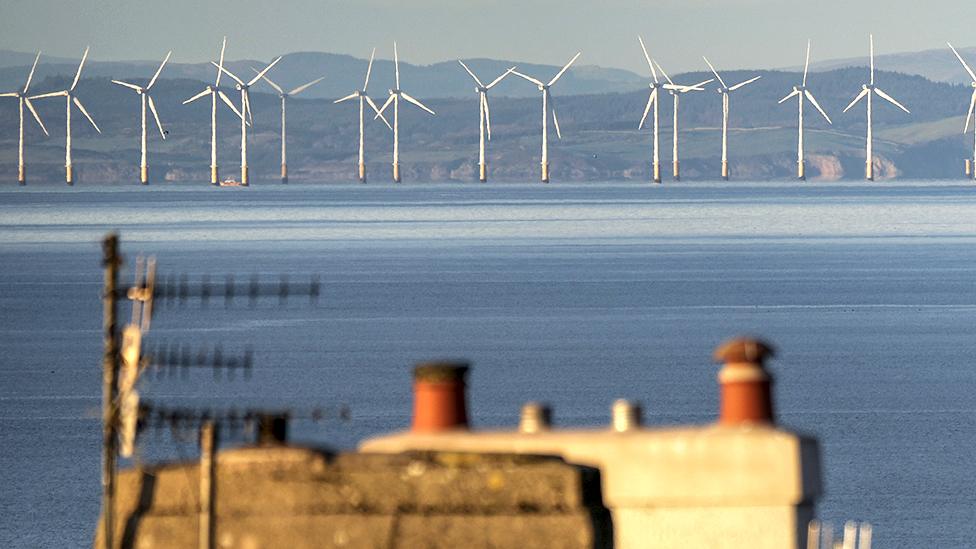
- Published22 July 2023

